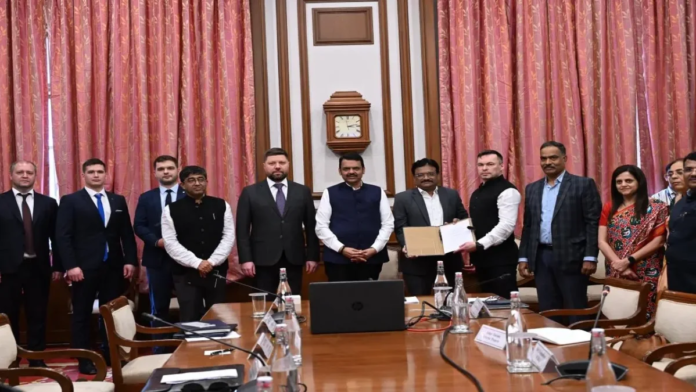
In a landmark development, the Maharashtra government has signed a Memorandum of Understanding (MoU) with Russia’s state-owned ROSATOM for the development of a Small Modular Reactor (SMR). This marks the first instance of a state government in India directly participating in nuclear energy development—an area traditionally overseen by the Department of Atomic Energy (DAE). The project will move forward only after securing necessary approvals from the central government.
Objectives of the MoU
The primary aim of the MoU is the collaborative development and eventual commercialization of a thorium-based reactor in Maharashtra. The initiative emphasizes adherence to safety standards laid down by the Atomic Energy Regulatory Board (AERB) and aims to establish a localized manufacturing ecosystem under the ‘Make in Maharashtra’ initiative.
Key Stakeholders
The agreement was signed between Maharashtra State Power Generation Co. Ltd. (MAHAGENCO) and ROSATOM’s Small Modular Reactor division. Strategic support will be provided by the Maharashtra Institution for Transformation (MITRA). A joint working group will be created to facilitate research, coordination, and implementation of the project.
Safety and Regulatory Compliance
The project will operate in full compliance with the Government of India’s legal and regulatory framework, particularly the safety protocols set by the AERB. Given the sensitive nature of nuclear energy, strict adherence to safety guidelines is a cornerstone of this initiative.
India’s Thorium Journey: Background
While India has developed significant expertise in the nuclear fuel cycle, it currently does not operate any reactors powered by thorium. The Prototype Fast Breeder Reactor (PFBR), under development, will initially use Uranium-Plutonium Mixed Oxide (MOX) fuel but is eventually designed to convert thorium-232 into fissile Uranium-233. This progression is key to leveraging India’s abundant thorium reserves.
Advantages of Small Modular Reactors
Small Modular Reactors present several benefits over conventional nuclear reactors. They are inherently safer, more efficient, and easier to integrate into existing power systems due to their modular design. The PFBR, for example, incorporates advanced safety mechanisms that enable rapid shutdown during emergencies, thereby mitigating potential risks.
Looking Ahead: Future Prospects
This collaboration between Maharashtra and ROSATOM could be a turning point for India’s nuclear energy sector. If successful, it will not only boost domestic energy security but also support the nation’s transition towards clean and sustainable energy sources. The project represents a forward-looking step in aligning with India’s broader goals of energy innovation and environmental responsibility.

